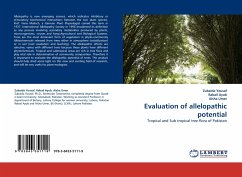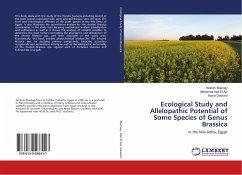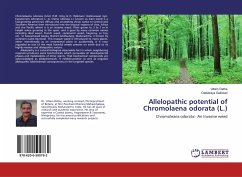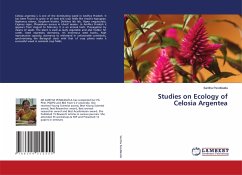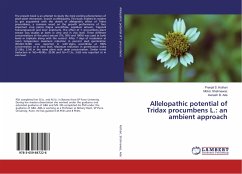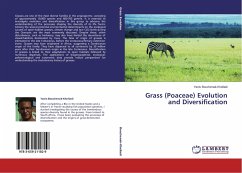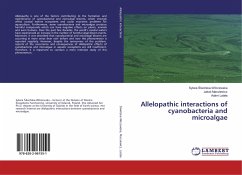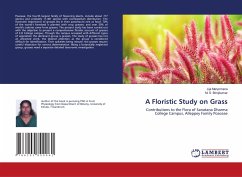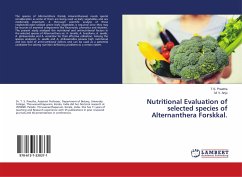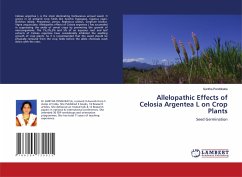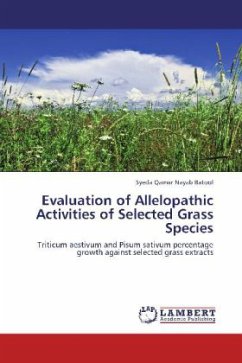
Evaluation of Allelopathic Activities of Selected Grass Species
Triticum aestivum and Pisum sativum percentage growth against selected grass extracts
Versandkostenfrei!
Versandfertig in 6-10 Tagen
32,99 €
inkl. MwSt.

PAYBACK Punkte
16 °P sammeln!
The aqueous extracts of grass species were tested for their allelopathic influences on germination and percentage growth of Wheat (Triticum aestivum) and Pea (Pisum sativum). Two vegetative (stem, leaf) and one reproductive (flower) part with three different concentrations (5g, 3g, 1g) were used for the present study. The toxicity and non toxicity was assessed by recording their effect on germination and seedling of test weed species. Both the inhibitory and stimulatory effects were observed on radical and plumule growth of wheat and pea seeds. At different concentrations the inhibitory and st...
The aqueous extracts of grass species were tested for their allelopathic influences on germination and percentage growth of Wheat (Triticum aestivum) and Pea (Pisum sativum). Two vegetative (stem, leaf) and one reproductive (flower) part with three different concentrations (5g, 3g, 1g) were used for the present study. The toxicity and non toxicity was assessed by recording their effect on germination and seedling of test weed species. Both the inhibitory and stimulatory effects were observed on radical and plumule growth of wheat and pea seeds. At different concentrations the inhibitory and stimulatory effects were varied. All the grass species showed significant value except Cynodon dactylon flower wheat radicle and plumule. Similarly stem extraction have non-significant effect on growth of Pea. The tolerance of the test plant towards the extracts of grass species in the decreasing order was Triticum aestivum Pisum sativum.



